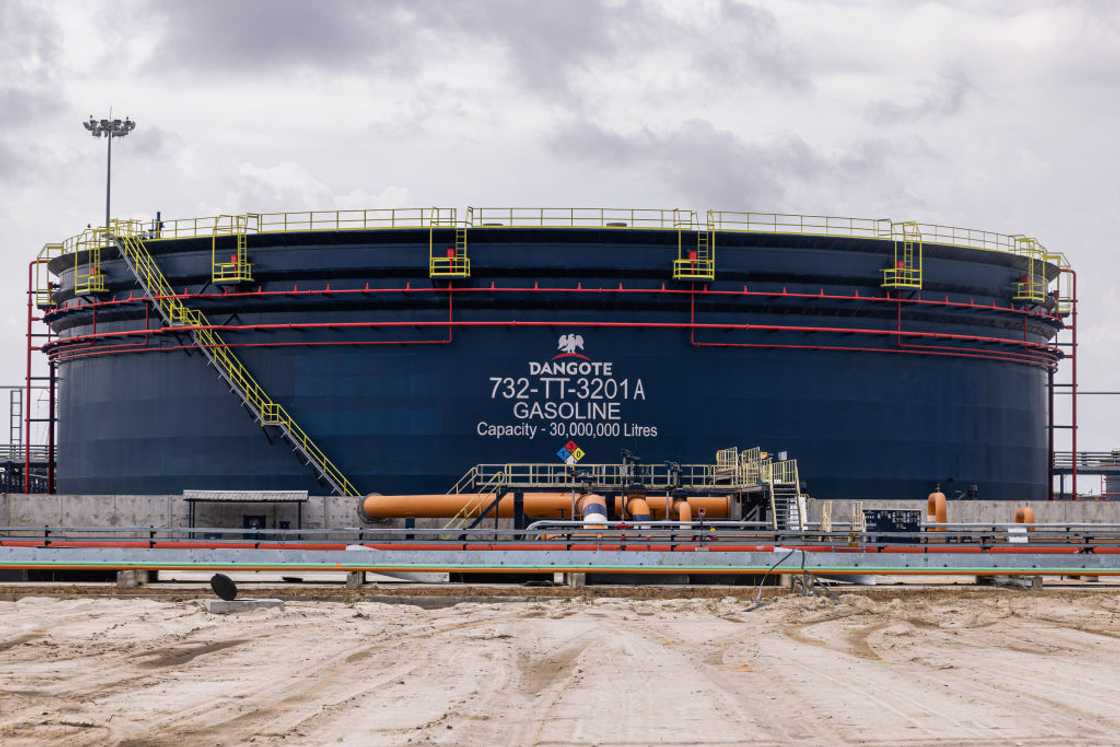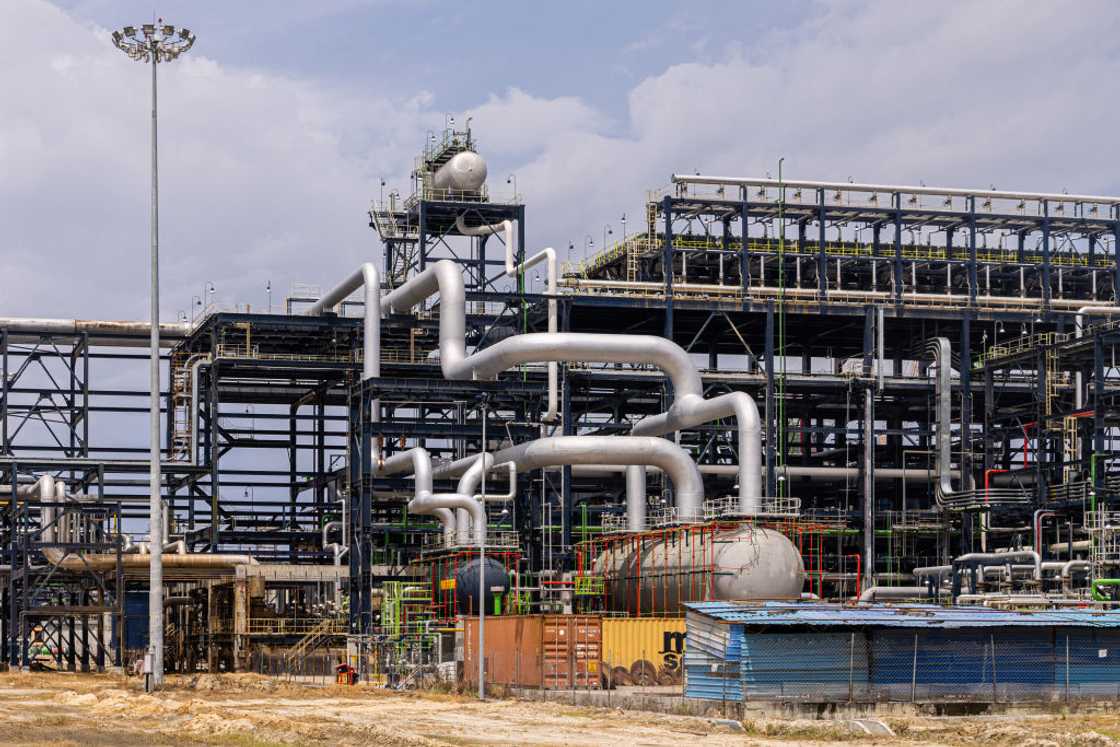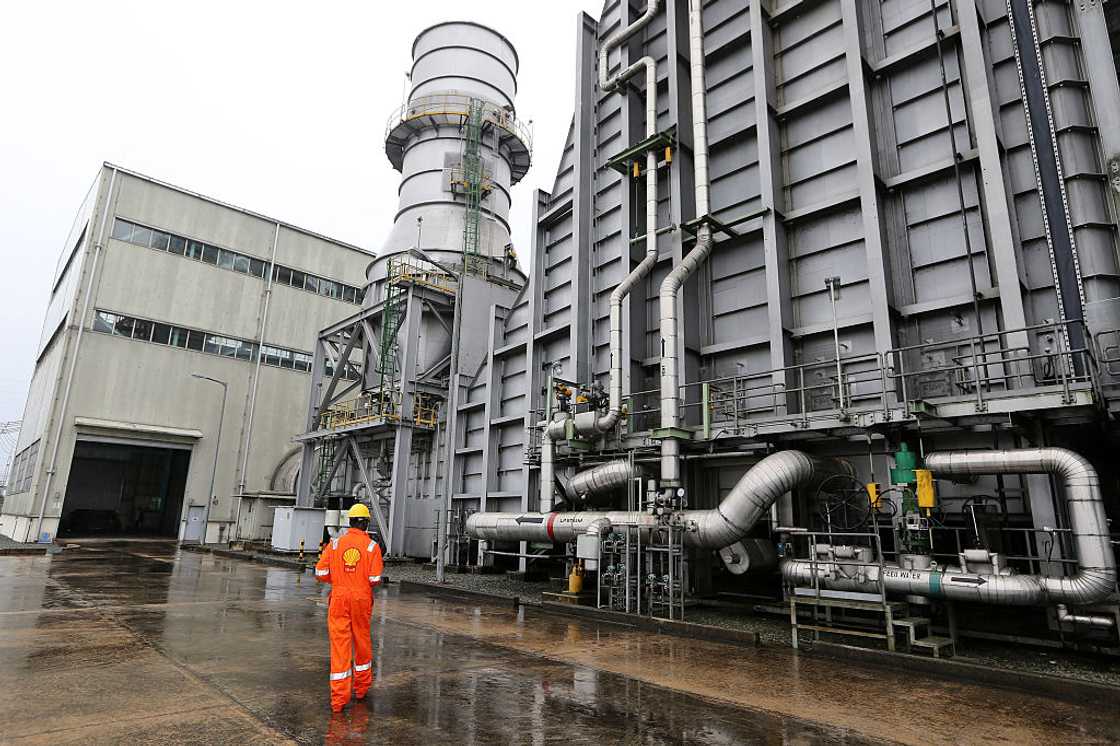Importance of crude oil in Nigeria's economy well explained
Nigeria is the continent's largest oil producer. The country depends heavily on crude oil for growth and development. Oil shapes revenue, trade, and international standing. This article explains the importance of crude oil in Nigeria's economy.

Source: Getty Images
TABLE OF CONTENTS
- Key takeaways
- The importance of crude oil in Nigeria’s economy
- 1. Oil provides most of the government’s revenue
- 2. It earns valuable foreign exchange through exports
- 3. The sector creates direct and indirect employment
- 4. It drives industrial growth and supports factories
- 5. Oil money funds major infrastructure projects
- 6. It supplies energy for homes, businesses, and transport
- 7. Oil gives Nigeria recognition in the global market and within OPEC
- 8. The sector attracts foreign investors who bring capital
- 9. It encourages research and technological growth
- 10. Oil strengthens Nigeria’s influence in Africa and beyond
- When was oil discovered in Nigeria?
- Which oil companies are in Nigeria?
- What are the positive impacts of petroleum on the Nigerian economy?
- What are the 10 highest oil-producing state in Nigeria?
Key takeaways
- Oil provides over half of Nigeria’s government revenue.
- Crude oil exports bring in most of the nation’s foreign exchange.
- The sector supports jobs, industries, and infrastructure.
- Heavy dependence on oil exposes Nigeria to global price shocks.
The importance of crude oil in Nigeria’s economy
Crude oil is the backbone of Nigeria’s economy. It touches every part of the nation’s development. Below is a list of 10 important uses of crude oil in Nigeria's economy;
1. Oil provides most of the government’s revenue
In early 2025, oil revenue accounted for about 30% of federal government revenue, underlining its central role in public finance. Without it, the government's ability to fund essential services would be severely constrained.
2. It earns valuable foreign exchange through exports
In 2023, crude petroleum exports brought in around $45.6 billion, giving Nigeria over 80% of its export earnings and vital foreign currency reserves.
3. The sector creates direct and indirect employment
Oil companies and their service providers employ thousands. From engineers and technicians to transporters and hospitality workers, many communities depend on oil for income and stability.

Source: Getty Images
4. It drives industrial growth and supports factories
Petroleum products fuel Nigeria’s factories and supply feedstock for fertilizer and plastic production. This industry linkage invigorates manufacturing and broad industrial capacity across the nation. For instance;
- Schools: rulers, crayons, glue, book covers, binders, ink, cartridges, etc.
- Hospitals: binding agent for creams, coatings for pills, disposable syringes, contact lenses, etc.
- Fashion and beauty sector: clothing, fabrics, cosmetics like nail polish, deodorants, shampoo
- Out shopping: shopping bags, credit cards, egg cartons, plastic milk bottles
- Home: non-stick cooking pans, upholstery, carpets, cling film, laundry detergents, dry-cleaning products, storage containers, etc.
- Building: roofing tiles, paint, pipes, insulating material, paint, etc.
- Transportation: asphalt road surfaces, bike crash helmets, bicycle handlebar grips, car and bike tires, etc.
- Office: computer hardware, diskettes, faxes, pens, printing ink, chairs, etc.
- Sports and entertainment: cassette tapes, camera film, artists' paint, trainers, football boots, shin pads, roller blades, windsurfers, etc.
5. Oil money funds major infrastructure projects
Earnings from crude oil enable billions in spending on roads, hospitals, and schools across Nigeria. In fact, among the five important roles of crude oil in Nigeria's economy, its ability to generate revenue that drives infrastructure development is vital.
In 2024, oil revenues reached N50.88 trillion ($32.9 billion), heavily supporting public infrastructure investment.
6. It supplies energy for homes, businesses, and transport
Petrol, diesel, and kerosene from crude oil power vehicles, generators, and cooking appliances in homes and many restaurants. They remain central to daily life and commerce, especially in areas with inconsistent electricity supply.
7. Oil gives Nigeria recognition in the global market and within OPEC
Nigeria’s status as a top producer grants it influence in OPEC and global decisions. Its leadership in Africa’s oil sector bolsters its diplomatic and economic standing abroad.
8. The sector attracts foreign investors who bring capital
Energy giants like ExxonMobil are investing heavily. In 2025–27, Exxon plans a $1.5 billion injection into the Usan deepwater field, boosting production capacity and investor confidence.

Read also
FG to train 100,000 construction workers, provide job opportunities nationwide for artisans

Source: Getty Images
9. It encourages research and technological growth
Exploration and refining needs stimulate technical education and R&D. Though exact figures are limited, these requirements push Nigeria toward technological advancement in engineering and energy management.
10. Oil strengthens Nigeria’s influence in Africa and beyond
With significant oil revenue, Nigeria supports regional development initiatives and peacekeeping. It remains a major player in African diplomacy, backed by its energy-driven economic weight.
When was oil discovered in Nigeria?
Oil was discovered in Nigeria in 1956 at Oloibiri, a town in present-day Bayelsa State. Before then, the economy depended on agriculture, with cocoa, palm oil, and groundnuts as major exports. The discovery shifted Nigeria’s focus almost entirely to crude oil.
By the 1970s, oil had become the dominant source of trade and government revenue, creating wealth but also deep dependence and new challenges.
What is crude oil?
It is a natural fossil fuel found underground. It is unrefined and must go through processing. Globally, it is important for transport fuels, electricity, plastics, and chemicals.

Read also
Beans prices fall as farmers bebunk “cement preservation” claims, link drop to food market trends
How much does oil contribute to Nigeria's GDP?
Nigeria’s dependence on crude oil shapes its economy. More than 80% of exports come from crude oil. According to Nigeria's oil revenue statistics, the sector provides over half of the government's income.
What percentage of Nigeria’s GDP is from oil?
Oil contributes around 6 to 9 percent of Nigeria’s GDP. While this seems small, it is vital because it funds most of the federal budget. This shows how oil is more than just part of the GDP. It is the lifeline of public spending.
Facts about the oil industry in Nigeria in 2025
Indicator | Value / Estimate |
Crude oil production (daily average) | Around 1.78 million barrels per day (bpd) |
Crude oil production (peak Jan 2025) | 1.74 million bpd (including condensates) |
Crude oil production (March 2025) | 1.60 million bpd (incl. condensates) |
Crude oil exports (Q1 2025 value) | ₦12.96 trillion (~62.9% of total exports) |
Export share of foreign exchange earnings | Over 80% of foreign exchange earnings |
Government revenue from oil | Nearly two-thirds (~67%) of government revenue |
Dangote Refinery capacity | 650,000 bpd when fully operational |
Oil production growth in July 2025 | Hit 1.8 million bpd, highest in 2025 |
These figures highlight how crude oil continues to dominate Nigeria’s economy in 2025, shaping revenues, exports, and industrial growth while reinforcing the nation’s dependence on petroleum.
By-products and refining of crude oil
Crude oil gives rise to many products. Petrol, diesel, and kerosene are common. Liquefied petroleum gas powers homes. Asphalt builds roads. Petrochemicals lead to plastics and fertilizers.
What is refining of crude oil?
Refining is the process of turning crude oil into usable products. Nigeria has four refineries, but they operate below capacity. As a result, the country imports much of its refined fuel. This is costly and reduces the full benefits of crude oil.

Source: Getty Images
Which oil companies are in Nigeria?
The Nigerian National Petroleum Company Limited (NNPC) oversees the activities of oil producers and transnational corporations. Local firms also play a growing role under the government’s policy of “Nigerianization” in the oil sector.
In 1999, the government revoked oil production licenses from 16 companies to strengthen control and improve compliance.
Foreign oil companies now operate differently. New entrants do not hold direct joint ventures with NNPC. Instead, they often act as technical partners with local companies, sharing both risks and production output.
Here are some established oil companies in Nigeria:
- Shell
- Mobil
- Chevron
- Agip
- Elf
- Texaco
- Ashland
- Consolidated Oil Limited
- Dubri Oil Company Limited

Source: Getty Images
Challenges of oil in Nigeria
The oil sector has clear positives. It creates revenue, jobs, and infrastructure. It brings global recognition. It secures Nigeria’s place in OPEC.
But problems also exist. Here are some issues that arise due to the presence of oil in Nigeria:
- Overdependence hurts agriculture and manufacturing.
- Mismanagement and corruption weakened the use of oil revenue.
- Oil spills and gas flaring caused environmental damage.
- Regional tensions and increased insecurity in the Niger Delta have grown.
- Global oil price changes often shake the economy.
The future of Nigeria’s oil sector
The world is moving towards clean and renewable energy. This affects Nigeria directly. The government has passed the Petroleum Industry Act to reform the sector. There are also efforts to diversify into agriculture, technology, and services. The shift is slow, but necessary. Nigeria must prepare for a time when oil will no longer hold the same power.
How has oil impacted Nigeria?
The discovery of oil brought quick economic growth. Cities expanded, and industries thrived. However, it also tied national policies closely to oil revenue. The benefits and problems of oil in Nigeria are clear. On one side, oil wealth funds development and global recognition.
On the other hand, it has created inequality between oil-producing regions and the rest of the country, who lack the natural resource. Politically, it has fueled tensions and conflicts over resource control.
What are the positive impacts of petroleum on the Nigerian economy?
Petroleum is Nigeria’s main source of foreign exchange. It provides more than half of the government's revenue. The sector creates jobs directly in oil fields and indirectly in supporting industries. Oil money funds roads, power projects, and schools.
Petroleum also attracts foreign investment, bringing in capital and technology. Nigeria’s membership in OPEC gives it global recognition and influence.
What are the 10 highest oil-producing state in Nigeria?
The top oil-producing states are Akwa Ibom, Delta, Rivers, Bayelsa, Ondo, Edo, Imo, Abia, Anambra, and Lagos.
The importance of crude oil in Nigeria's economy cannot be overstated. It provides money, jobs, and recognition. Yet it also brings challenges like corruption, environmental harm, and heavy dependence. The future lies in balancing oil with other sectors. For Nigeria to grow sustainably, it must use oil wealth wisely while building new economic paths.
Legit.ng also shared a detailed list of Nigeria's valuable natural resources and locations. The country is blessed with coal, gold, zinc, and more minerals.
Information penned in this article is essential for local and foreign investors. If you want to invest in Nigeria's mining sector, find out where minerals are located.
Source: Legit.ng

Peris Walubengo (Lifestyle writer) Peris Walubengo has vast experience in search engine optimization through digital content generation, research, editing, and proofreading. She joined Legit.ng in April 2022 and completed the AFP course on Digital Investigation Techniques. You can email her at perisrodah254@gmail.com.

Adrianna Simwa (Lifestyle writer) Adrianna Simwa is a content writer at Legit.ng where she has worked since mid-2022. She has written for many periodicals on a variety of subjects, including news, celebrities, and lifestyle, for more than three years. She has worked for The Hoth, The Standard Group and Triple P Media. Adrianna graduated from Nairobi University with a Bachelor of Fine Arts (BFA) in 2020. In 2023, Simwa finished the AFP course on Digital Investigation Techniques. You can reach her through her email: adriannasimwa@gmail.com






